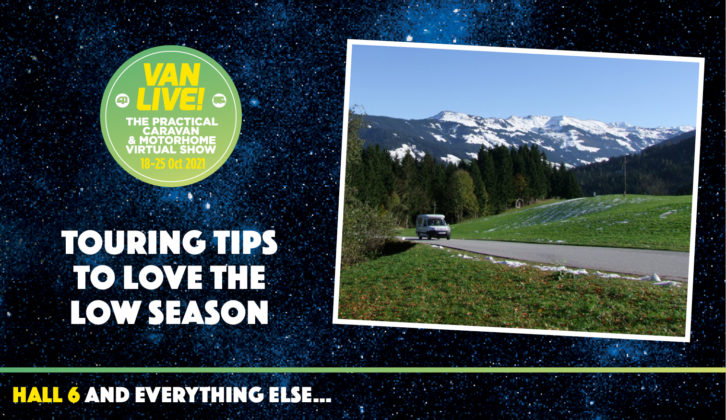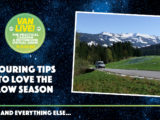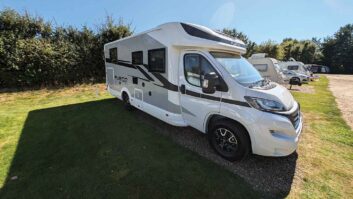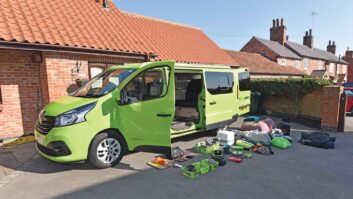As the leaves drift from the trees, it can be all too tempting to stash your ‘van into storage and hibernate until the ‘new’ season. My advice is – don’t!
Motorhomes like being loved all year round and unused ‘vans can develop problems that go undetected. Besides, for such a large investment, why only use your ‘van for a fraction of the year? Here are our top touring tips, to inspire you to enjoy winter holidays in your motorhome.
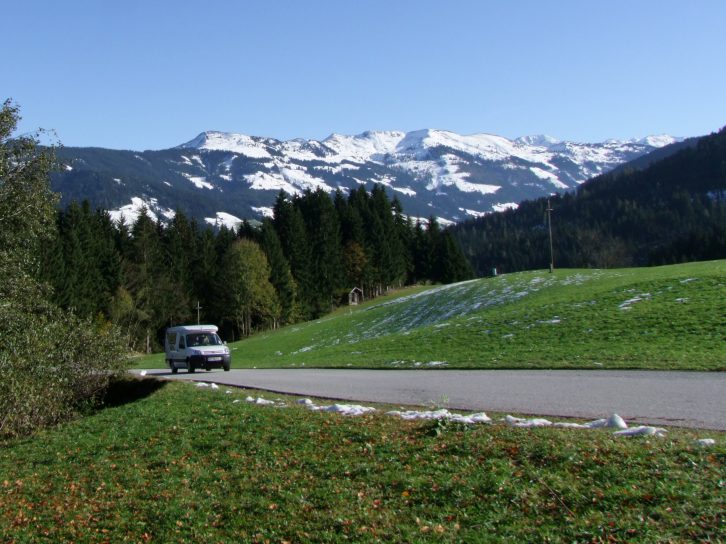
Grade III Thermal Insulation and Heating
If your ‘van is rated with Grade III Thermal Insulation and Heating classification – and most built within the last few years are – it’s considered good-to-go throughout the winter anyway. But what is this magical classification? Simply put, it’s the highest industry (approved by the National Caravan Council) standard that means your water system will still work when the outside temperature is -15˚C and you’ll remain snug and warm inside with an efficient heating system.
Motorhomes must be put through a rigorous test in a cold chamber lab to achieve Grade III Thermal Insulation and Heating classification. The chamber, with the ‘van inside, is cooled to -15˚C. At that point, the ‘van heating system is turned on and the inside temperature of the motorhome is raised to 20˚C. This must be achieved within four hours and then remain stable for at least an hour.
The fresh water supply is also connected and must be operational while the outside temperature of the chamber remains at -15˚C. The thermal efficiency of the ‘van is also tested by measuring the amount of power required to maintain an internal temperature of +20˚C for two hours. Similar to modern housing, the U-value (the rating of thermal efficiency) is calculated, with a maximum allowance of 1.2W/m2K.
So how do I know if my ‘van has Grade III classification? If you bought it new, the dealer will almost certainly have made a song and dance about it, for it’s a big deal and the major manufacturers are frequently competing with one another to announce that their latest model has passed the test in much less time than the requirements and with a far greater thermal efficiency. If you’ve bought a used motorhome, almost all A-class ‘vans are fully winterised, while more recent coachbuilts and van conversions from the major manufacturers are likely to have Grade III classification – check your motorhome’s manual or with the manufacturer.
If you’re in a lovable but more vintage ‘van that’s not advantaged by the latest technological advances in motorhome construction materials, all is not lost – you can still enjoy winter on the road, even if it does involve a couple of extra layers and a beanie hat at bedtime. You can retro-fit heater blankets such as TankBlanket to both fresh and waste water tanks and water pipes, which protects them from freezing. Alternatively, drain the system completely, open the waste-water valve to drain into a bucket and carry water bottles with you.
And, just as you would at home, make your ‘van extra cosy with an additional rug on the floor, soft cushions, a mattress topper and high-tog duvets or sleeping bags. Opt for cooking that doesn’t involve oodles of steam and thus condensation (no boiling your sprouts for hours on end!) and you’ll be in winter bliss.
Where shall I go?
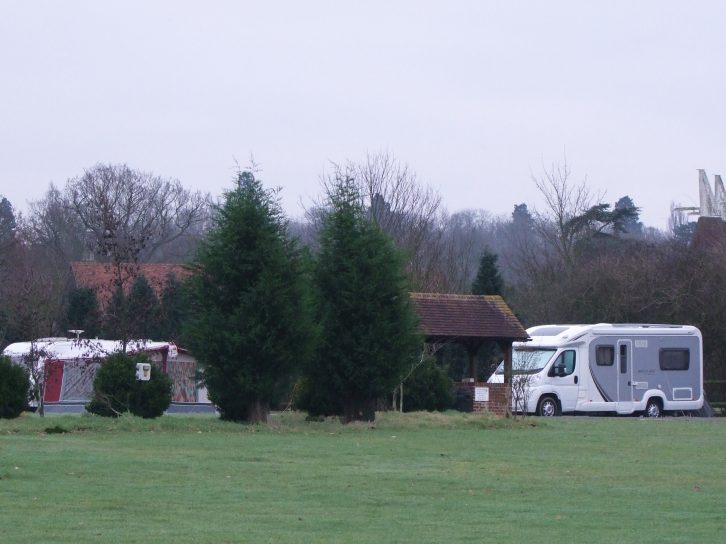
Crisp, frosty walks with skeletal trees; coastlines void of people with the sea whipped up into a frenzy; waking to mists coating the countryside – winter is a fabulous time for motorhome holidays in the UK. There are masses of UK campsites that remain open all year round, including many sites run by the The Camping & Caravanning Club and The Caravan and Motorhome Club, and you’ll often find discounted rates or special offers for staying out of season.
The Caravan and Motorhome Club, for example, offers a family deal of two adults, up to four children plus a standard pitch for £16; it’s a great way to enjoy budget family touring. Whether at an independent, club or five-‘van Certificated Site/Location, opting for a hardstanding pitch will avoid a spot of bother should the ground turn squelchy. And don’t forget that many locations within the Practical Motorhome Nightstops scheme stay open all year, giving the option of a budget break when the credit card has taken a beating in the run up to Christmas.
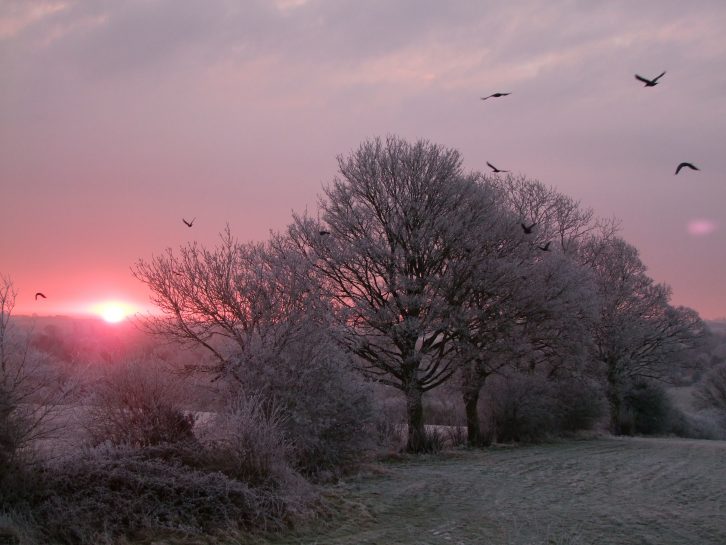
So whether your eyes beam at the thought of Christmas at Longleat, your cockles are warmed at the idea of a cosy pub (roaring fire obligatory) in the Cotswolds or you’re inspired by rambles along The Ridgeway, you – and your ‘van – will find somewhere to stay.
Migrating south for winter
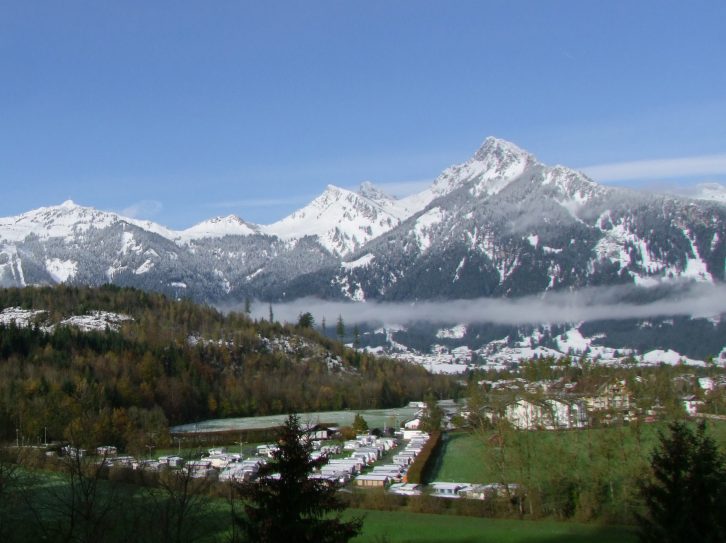
Of course, you might prefer to keep company with the migrating swans and head to warmer climes in southern Europe. While some campsites in popular coastal or tourist locations across Europe may shut, aires and Stellplätze generally remain open all year round, as do many sites within the France Passion scheme – of which there are plenty within southern France. You’ll also find lots of campsites open in southern Spain with offers for long-term (28 days or more) stays. And purchasing the CampingCard ACSI (available in the UK through Vicarious Books) provides low-cost camping deals at Europe-wide sites throughout the low season.
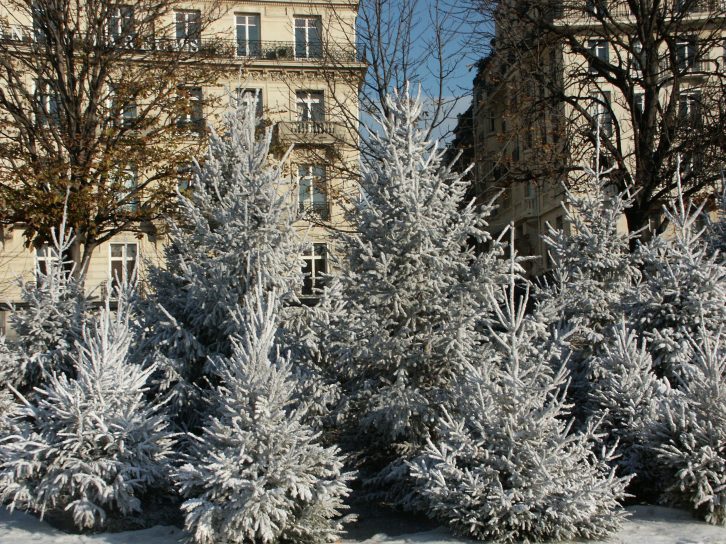
Winter is also a fabulous time for taking a city break. Most city-based campsites remain open all year round, allowing you to make the most of magnificent German Christmas markets, quieter Parisian art galleries or less populated Venetian canals.
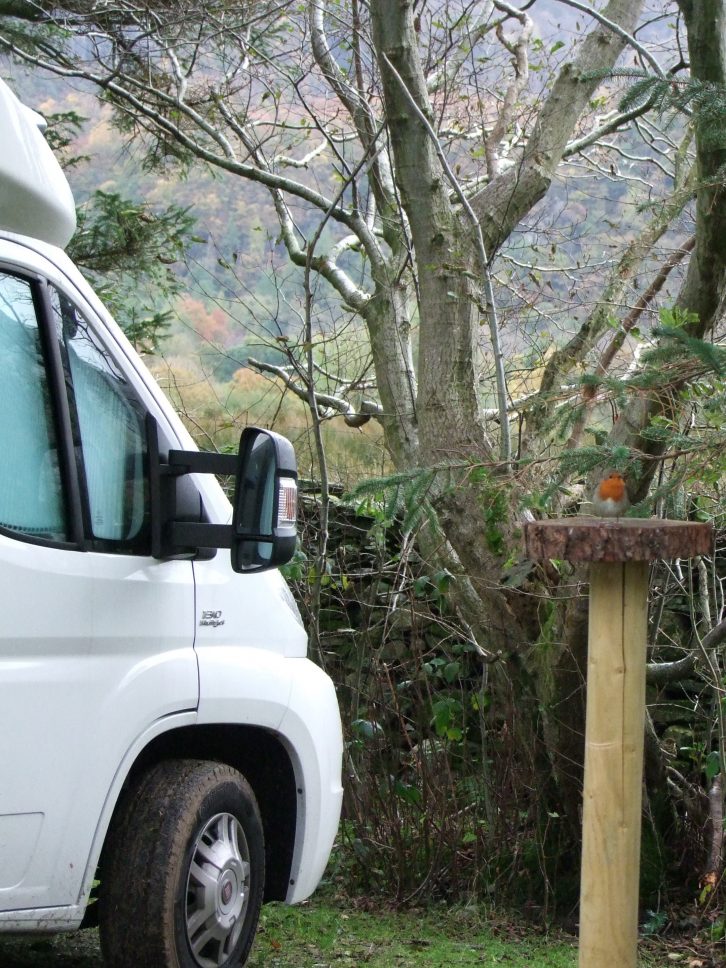
So please don’t mothball your ‘van. Dig out that extra-thick fleece, pack your woolly hats and gloves, don’t forget the vat of hearty soup and enjoy your winter travels!
You’re in Hall 6 Advice Lounge & Event Theatre at Van Live! See what else is happening on stage, or take me to the Show Guide.
There are masses of UK campsites that remain open all year round
